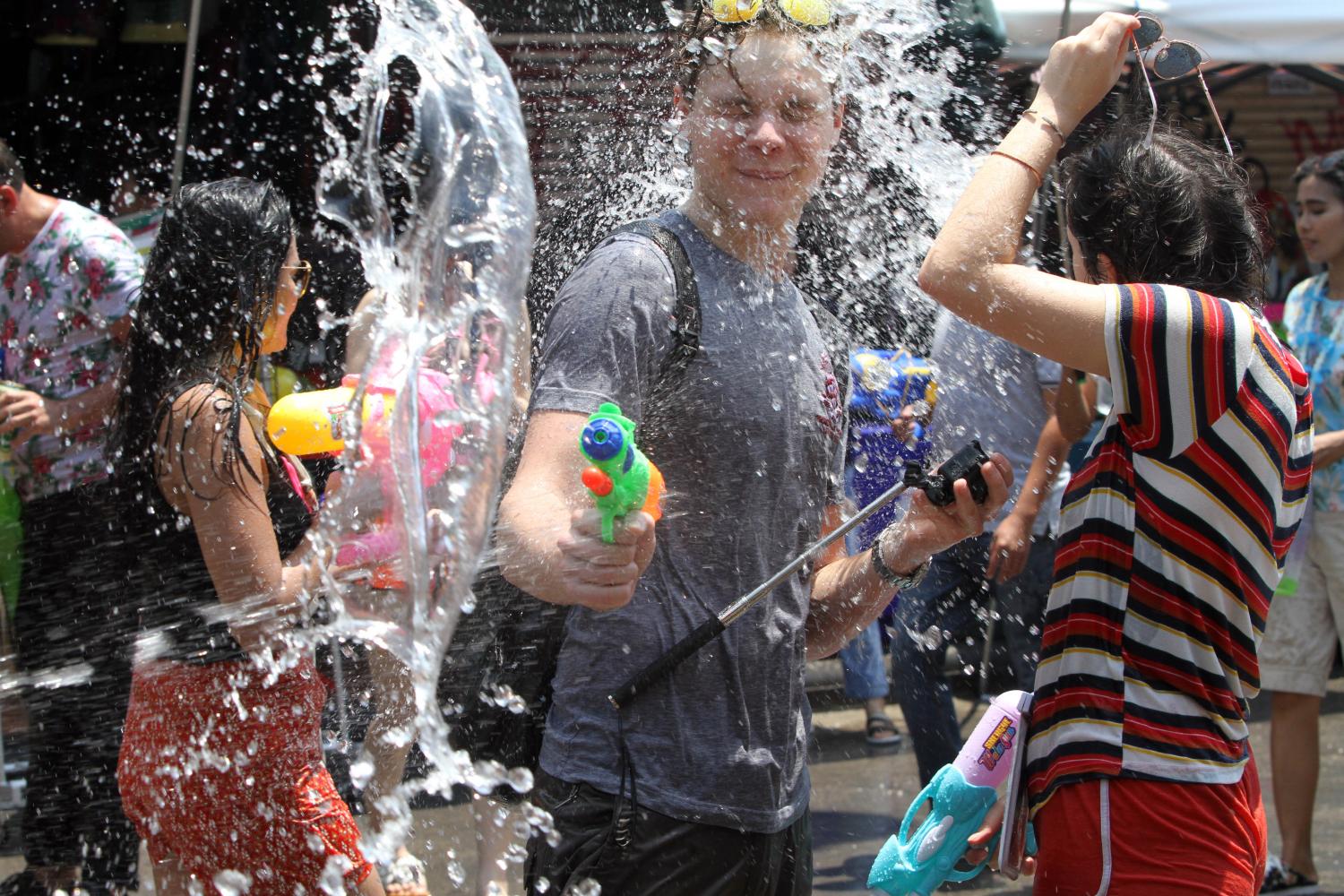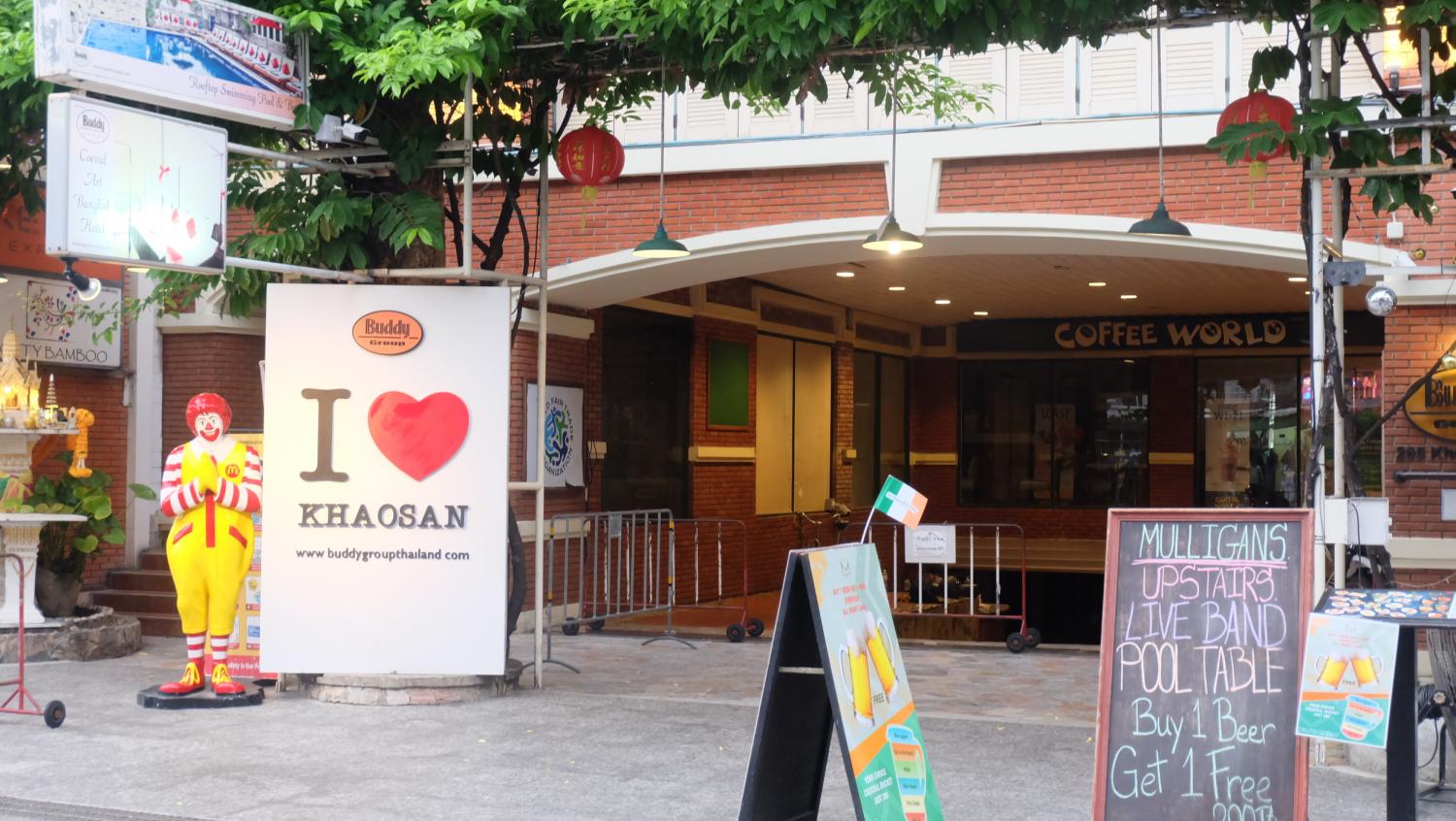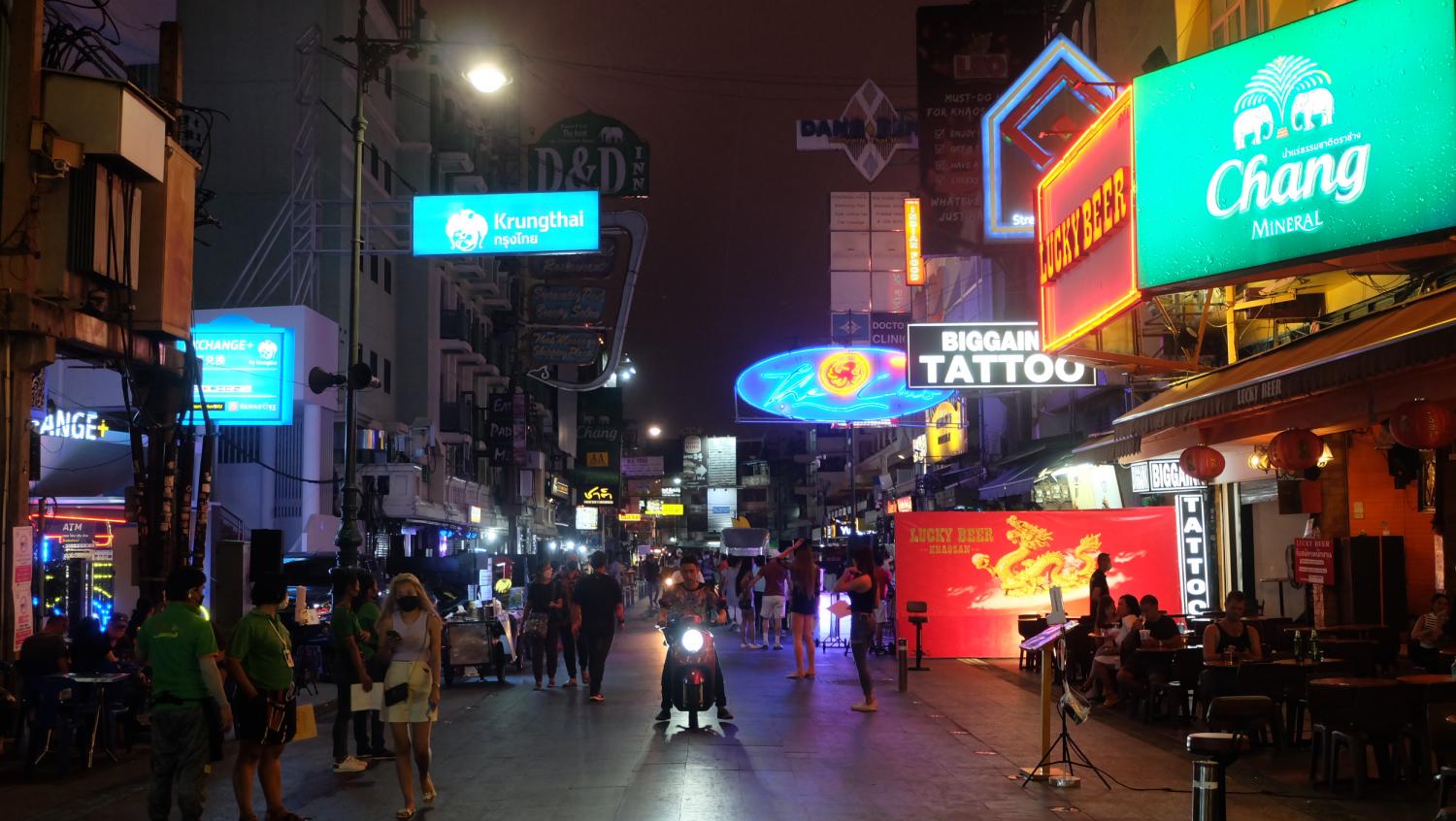The novel coronavirus pandemic has subdued Khao San Road for more than two years. It was not until recently that the neon-lit street showed a flicker of life. However, officials have banned the annual water fight to avoid the risk of an outbreak for the third year running, dashing hopes of a revival.
Before the pandemic, Songkran was wet and wild here. A packed throng of locals and foreigners carried a wide range of weapons, from water pistols to Super Soakers. No sooner than you opened fire, others would dash up to you and squirt, turning the district into a water battlefield.
Despite the initial objection, business operators have agreed to call off the boisterous water event this year over fears a new cluster will force the closure of their venues. However, they are carrying on through uncertain times, hoping that the 400m strip will see its former glory days again when the outbreak subsides.
"Khao San Road was a landmark for foreign visitors. It was lively and down-to-earth. But when the pandemic hit, the number of tourists dropped to zero. Now, it has increased to 30% of previous numbers on the weekends," said Thanupong Pansodsaicharoenkit, the owner of the Rocco club and its branches.
"Many have gone bust because they can't pay high rents. At first, we pumped money into businesses because we thought it would last only a year. Then, we borrowed from relatives and banks. If it drags into a fourth year, we will have to wind up."
The coronavirus crisis has been the toughest time during his nine-year tenure. Night entertainment venues have been closed for over two years. The Centre for Covid-19 Situation Administration (CCSA) has said it would consider reopening after Songkran, but in the meantime, operators can adapt their venues to be restaurants.
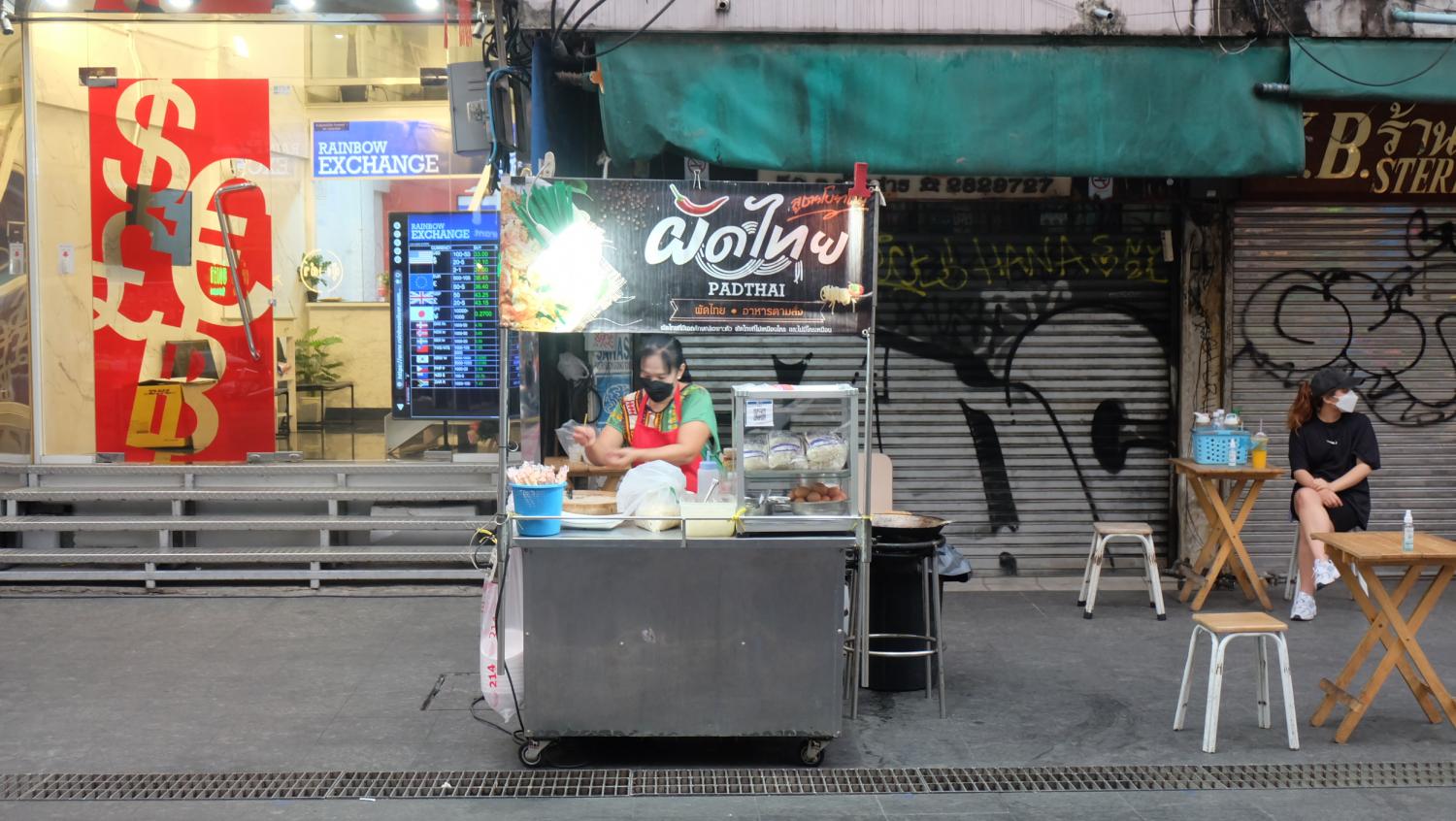
His nightclub-turned-eatery is offering food and alcoholic drinks under public health requirements, including SHA Plus and "Covid-free Setting" standards. For Songkran, he and others have agreed to scrap the water festival because the risk of losses looms larger than gains.
"However, visitors can still stroll and enjoy. I will hold a bathing ceremony for Buddha statues," he said. "Khao San Road won't see its end unless the earth swallows it up. If the pandemic is kept under control, it will get back on its feet. Khao San Road is the mainstay of the country's tourism."
Like it or not, the coronavirus will remain in memory forever. Born and raised in Nepal, Karma Gurung has made his home in Khao San for over two decades. He allows tourists to mark the wall of his bar. Undaunted by the pandemic, one of them left a positive message.
"When the pandemic hit, Khao San Road turned from a sleepless district into a ghost town. I closed my business for almost two years and used my savings because there were no visitors at all. Last year, I offered food delivery and now I have just reopened [for dining in]," he said.
He said the water festival is usually a golden period for business operators because it can attract a large number of tourists. If Songkran happens without water splashing, nobody will come. However, he is optimistic that the street will be buzzing again when the pandemic eases. "I hope it will come back next season," he added.

Khao San Road is home to more than 500 street vendors. One of them, Nittaya Po-niam, came from the Tha Maka district of Kanchanaburi in search of a better life. She is employed to cook pad Thai and other made-to-order dishes.
"I want the water festival to go ahead full steam, but some people fear that the outbreak will lead to another round of business closures. To me, the current situation is better than nothing. At least, I am working and living here under the roof of my employer's property," she said.
She recalled how many times, she was unable to earn money during self-isolation. Then, she set up a food stall in front of a factory, but the outbreak took her customers away, most of whom were workers put under quarantine.
"I hope the street will return to normal so that I will earn more money and stay here longer. I have been cooking every day this week. I get a higher wage if there are more customers," she said. "I can do everything to make a living. When one door closes, another door opens. There is a silver lining."
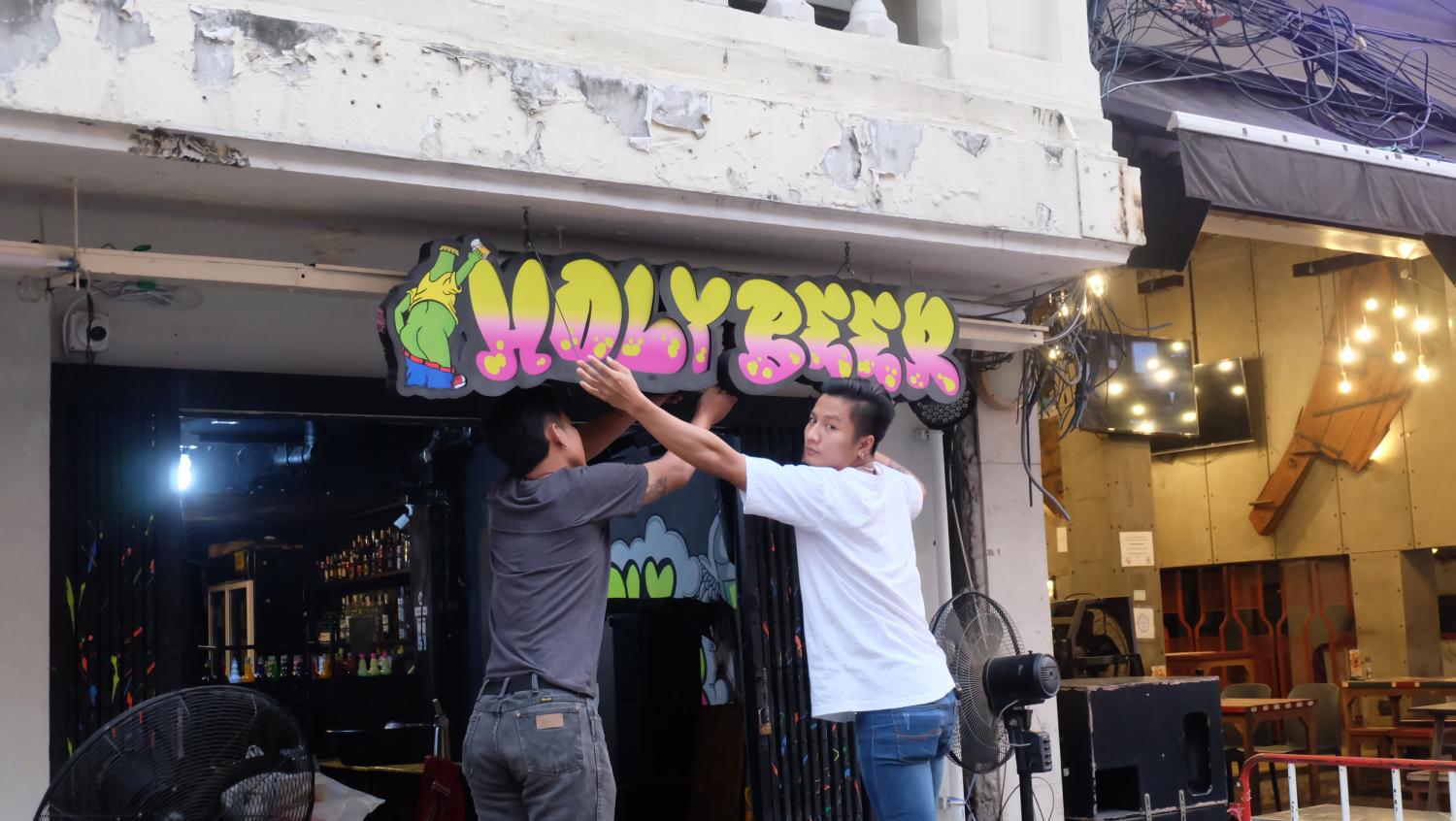
However, not everyone shares their optimism.
Papot Meecharoen left Ubon Ratchathani for Bangkok at 18. He stayed with his aunt and learned hair-braiding from her for a few years before setting up his own pop-up shop on Khao San Road for two decades. However, the pandemic changed everything.
"The water festival is usually the best period. When the coronavirus hit, I had to close my shop and use my savings. This year, I can still make some money. Nowadays, the number of customers is less than 10 per day, down by over 50% from pre-pandemic times. Each braiding costs 1,000-10,000 baht, depending on styles," he said.
Sa-nga Ruangwattanakul, president of the Khao San Road Business Association, said business operators have resolved to suspend the water festival because the government has imposed strict rules and penalties, but their shops remain open as usual.

"If organisers want to hold the event, they must take full responsibility. If participants go maskless, they are required to take an antigen test upon entry. If they splash water and get wet, they must be given face masks. Alcohol sales will be banned. Business operators agree that loss looms larger than gains," he said.
While nearly all restaurants are now operating, only half of the hotels will be open, up from less than 20% previously. Around half of the massage parlours and souvenir shops are now also offering services. However, only 10% of street vendors will likely be present.
Sa-nga said the festival will liven up Khao San Road and neighbouring areas because more people will go out than two years ago. As the country is reopening its borders, foreign tourists have arrived and booked hotels. The event will generate around 10 million baht per day, down from 50-80 million baht per day previously.
"Business operators are waiting for transition [of the pandemic] to an endemic stage in July," he said.
